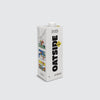
Founded in 1974, Kiamaina receives cherries from about 385 farmers in Karatina, Nyeri County. It is one of four factories managed by Kiama Cooperative Farmer's Society (FCS), which represents over 3000 farmers in Nyeri. Kiama FCS was proud to appoint its first female factory manager, Purity Wanjiku Muriuki, to Kiamaina Factory.
Ripe cherries are first handpicked and delivered to the factory the same day. Kiamaina Factory employs a cherry clerk, who ensures that only ripe, undamaged cherry is taken in, before undergoing meticulous sorting. The cherries are depulped on the factory's 4-disc pulper and then sorted by density.

The cherries are dry-fermented for 20-24 hours, with skilled staff regularly checking to ensure the fermentation is stopped at just the right moment. Hereafter, the coffee is sent to washing channels, where it is rinsed and graded.
The parchment is then soaked in clean water for 48 hours, and placed on deep beds to drain for 1-2 hours, for quicker water drainage. As it dries, workers sort through the parchment to remove any damaged or defective beans. The coffee is then moved to raised drying beds, where it will continue to dry for 1-3 weeks. Staff continue to sort through the parchment to remove any remaining defects, constantly turning the pile to promote even drying.

Before export, the parchment is milled at Sucafina Kenya's dry mill, Kahawa Bora. Providing key agricultural work, they have helped the farmers improve the quality of the crops, as well as increase productivity. The Kahawan Bora microlot program has made it easier to keep traceability intact all the way from the individual farmer to the roaster, upholding the quality of coffees from Kenya.








